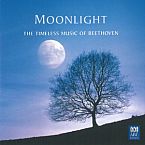Ode To Joy

Songfacts®:
- This is the final movement of Beethoven's Ninth and last Symphony. The German composer was increasingly aware of his declining health and spent seven years working on this symphony, starting the work in 1818 and finishing early in 1824. The symphony is one of the best known works of the Western classical repertoire and is considered one of Beethoven's masterpieces.
- At the time it was a novel idea to use a chorus and solo voices in a symphony, which is why it's also called the "Choral" symphony. Beethoven, in fact, had serious misgivings about portraying the music's message with actual words. Even after the premiere, he apparently came very close to replacing all the vocal lines with instrumental ones.
- The words, which are sung by four vocal soloists and a chorus, emanate a strong belief in mankind. They were taken from a poem written by German writer Friedrich Schiller in 1785 and revised in 1803, with additions made by Beethoven.
- The Ninth Symphony was premiered on May 7, 1824 in the Kärntnertortheater in Vienna. There had been only two full rehearsals and the performance was rather scrappy. Despite this, the premiere was deemed a great success.
- Beethoven was completely deaf when he embarked on this masterpiece, and it's a tragedy that he never heard a single note of it except inside his head. At the end of the symphony's first performance the German composer, who had been directing the piece and was consequently facing the orchestra, had to be turned around by the contralto Caroline Unger so that he could see the audience's ecstatic reaction. Beethoven had been unaware of the tumultuous roars of applause behind him.
-
- This is the most requested piece of music on the BBC Radio show, Desert Island Discs, which has been broadcast since 1942. Over 60 guests have chosen this tune.
- The Council of Europe and subsequently the European Union chose "Ode to Joy" as National Anthem of Europe.
- The piece was used in the 1988 film Die Hard, when the crooks crack the safe and get the money.
- Michael Jackson's 1993 single "Will You Be There," starts with an excerpt from a lesser known portion of the symphony's final movement.
- At the reopening of the Festival Hall in London, English singer-songwriter Billy Bragg was commissioned to write an English lyric for this piece. Bragg was introduced to the Queen at the opening ceremony and told her that when he started out "I wanted to be the new Bob Dylan, but I ended up being the new Friedrich Schiller."
- The BBC traditionally chooses a piece of music from the host country as the theme tune of their coverage of a major sporting tournament. The choice of "Ode to Joy" with its German connections caused controversy when used for the 1996 English-hosted European football championships. Recorded by the BBC Concert Orchestra and BBC Symphony chorus, it reached #36 on the UK singles chart.
- Nearly 50 years after being adopted as the Council of Europe's anthem, "Ode To Joy" re-entered the UK's Official Singles Chart in 2020 - thanks to Brexit.
In the week that Britain left the European Union, pro-Europeans campaigned to make a statement by getting Dutch conductor Andre Rieu's version of "Ode To Joy" to #1 on the chart. Though it failed to reach the summit, Beethoven's classic choral work reached the Top 40 for the second time.
Comments: 1
- Kev from Rogers, ArIt's a Japanese tradition to broadcast a live performance of Beethoven's 9th Symphony on NHK-TV on New Year's Eve.
The opening of the 2nd movement was NBC Nightly News' theme song in the 1960s, and I remember one Christmas Eve (1968, perhaps?) when part of the final movement was played as the ending theme.
More Songfacts:

Fight SongRachel Platten
Rachel Platten refused to talk politics when her "Fight Song" became the anthem for Hillary Clinton's 2016 presidential campaign, a decision she came to regret.

Take Me to the RiverAl Green
Al Green's "Take Me to the River" describes a baptism. Two years later, he became a reverend.
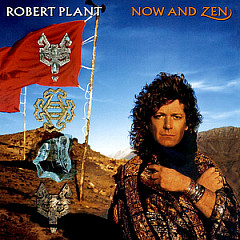
Heaven KnowsRobert Plant
Robert Plant's "Heaven Knows" is a satirical look at the '80s, when style seemed to trump substance.
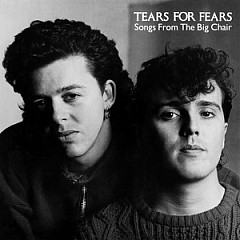
Everybody Wants To Rule The WorldTears for Fears
"Everybody Wants To Rule The World" was a line from a 1980 Clash song called "Charlie Don't Surf." Tears For Fears used it as the title of their 1985 hit.

More Than a FeelingBoston
Boston leader Tom Scholz went back to his job at Polaroid after releasing the group's debut album. When his co-workers kept coming by to tell him "More Than A Feeling" was playing on the radio, he knew it was time to quit his day job.
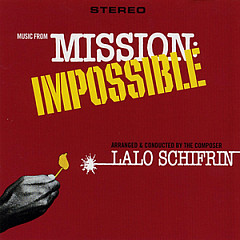
Theme From Mission: ImpossibleLalo Schifrin
The Mission: Impossible theme is in 5/4 time. Composer Lalo Schifrin joked that he did it so 5-legged aliens could dance to it.
Editor's Picks
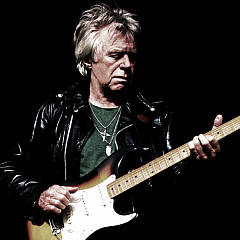
Dave EdmundsSongwriter Interviews
A renowned guitarist and rock revivalist, Dave took "I Hear You Knocking" to the top of the UK charts and was the first to record Elvis Costello's "Girls Talk."
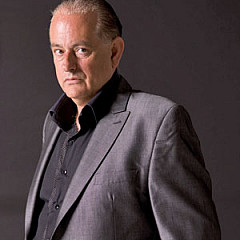
Martyn Ware of Heaven 17Songwriter Interviews
Martyn talks about producing Tina Turner, some Heaven 17 hits, and his work with the British Electric Foundation.
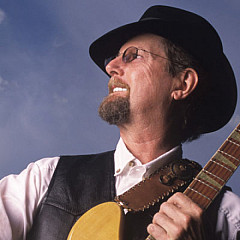
Roger McGuinn of The ByrdsSongwriter Interviews
Roger reveals the songwriting formula Clive Davis told him, and if "Eight Miles High" is really about drugs.
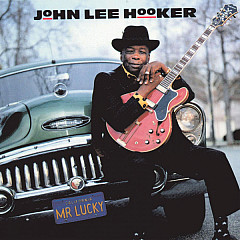
John Lee HookerSongwriter Interviews
Into the vaults for Bruce Pollock's 1984 conversation with the esteemed bluesman. Hooker talks about transforming a Tony Bennett classic and why you don't have to be sad and lonely to write the blues.

Chrissie Hynde of The PretendersSongwriter Interviews
The rock revolutionist on songwriting, quitting smoking, and what she thinks of Rush Limbaugh using her song.

Little Big TownSongwriter Interviews
"When seeds that you sow grow by the wicked moon/Be sure your sins will find you out/Your past will hunt you down and turn to tell on you."

